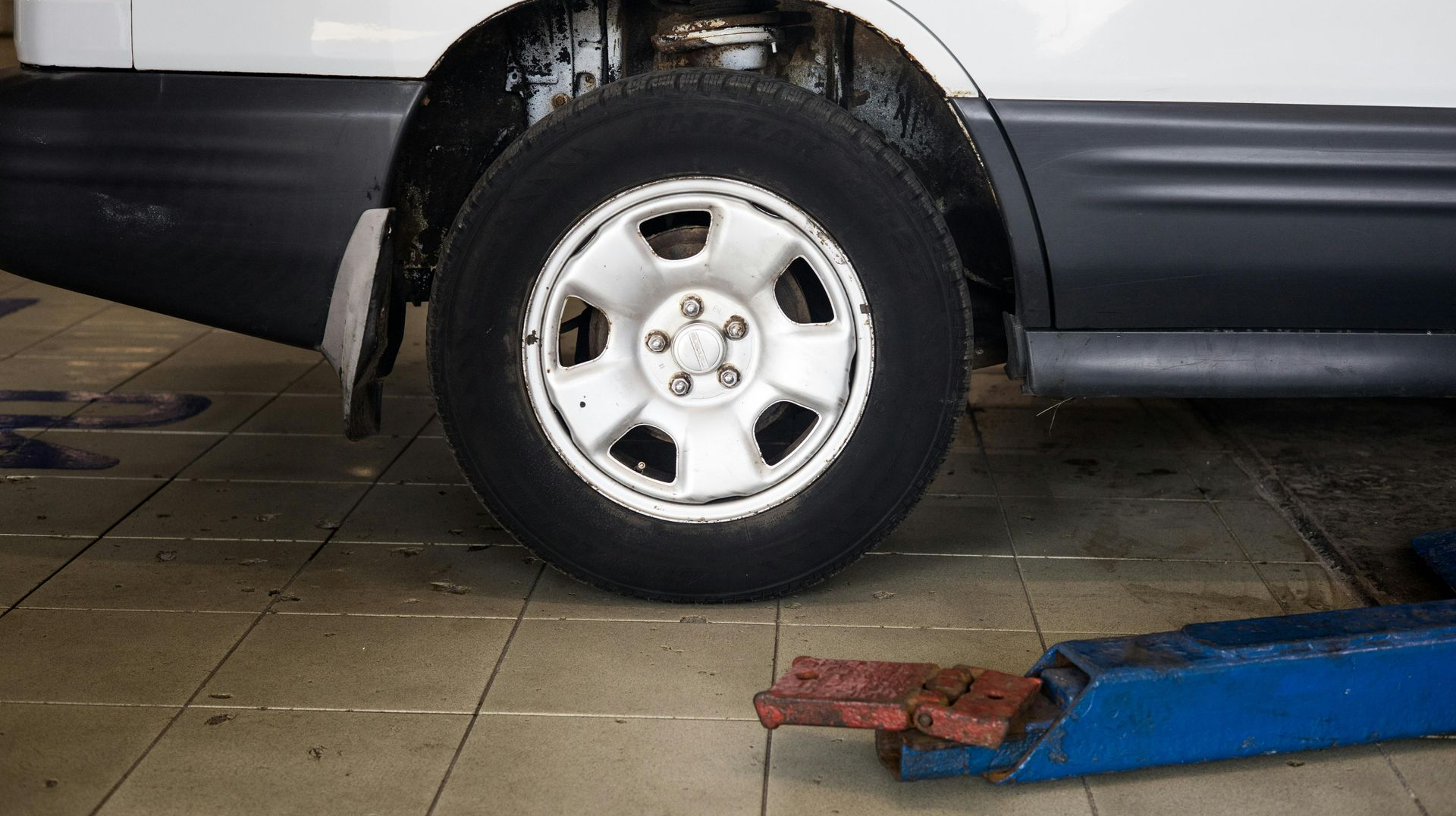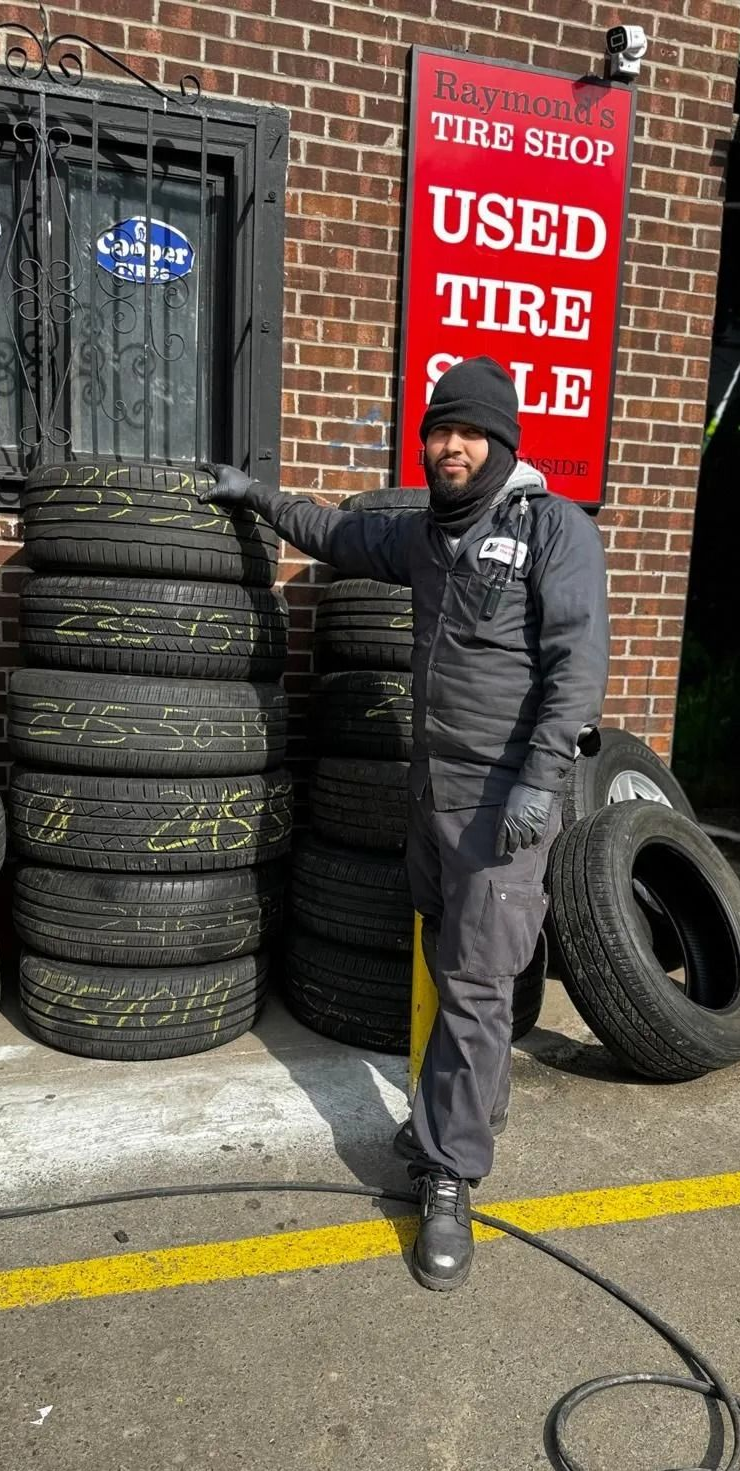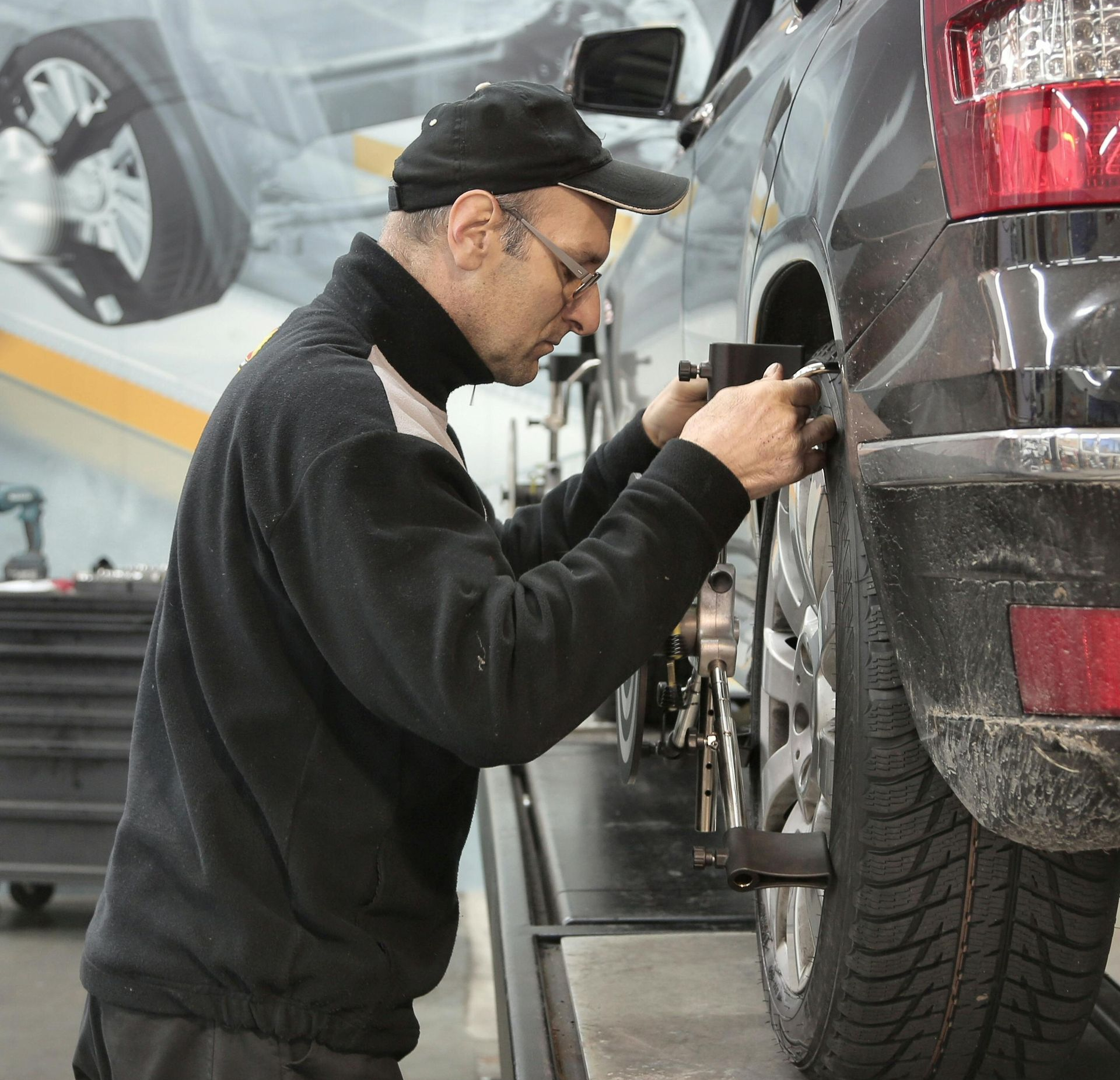How Tire Alignment Affects Fuel Efficiency and Safety
The Overlooked Factor in Tire Care
Many drivers focus on tire tread depth or air pressure when thinking about tire maintenance, but alignment is just as important. Tire alignment, also known as wheel alignment, refers to the adjustment of a vehicle’s suspension so that the tires make proper contact with the road. When alignment is neglected, it can lead to decreased fuel efficiency, uneven wear, and serious safety concerns. At Raymond’s Tire Shop, we emphasize the importance of alignment checks as part of routine tire care.
What Is Tire Alignment?
Tire alignment is not about adjusting the tires themselves, but about ensuring that the suspension system is calibrated correctly.
Alignment involves three key factors:
- Camber: The inward or outward tilt of the tire when viewed from the front.
- Toe: The angle at which the tires point inward or outward when viewed from above.
- Caster: The angle of the steering axis, which affects stability and steering.
When these angles are properly adjusted, the tires maintain maximum road contact, promoting even wear and smooth handling.
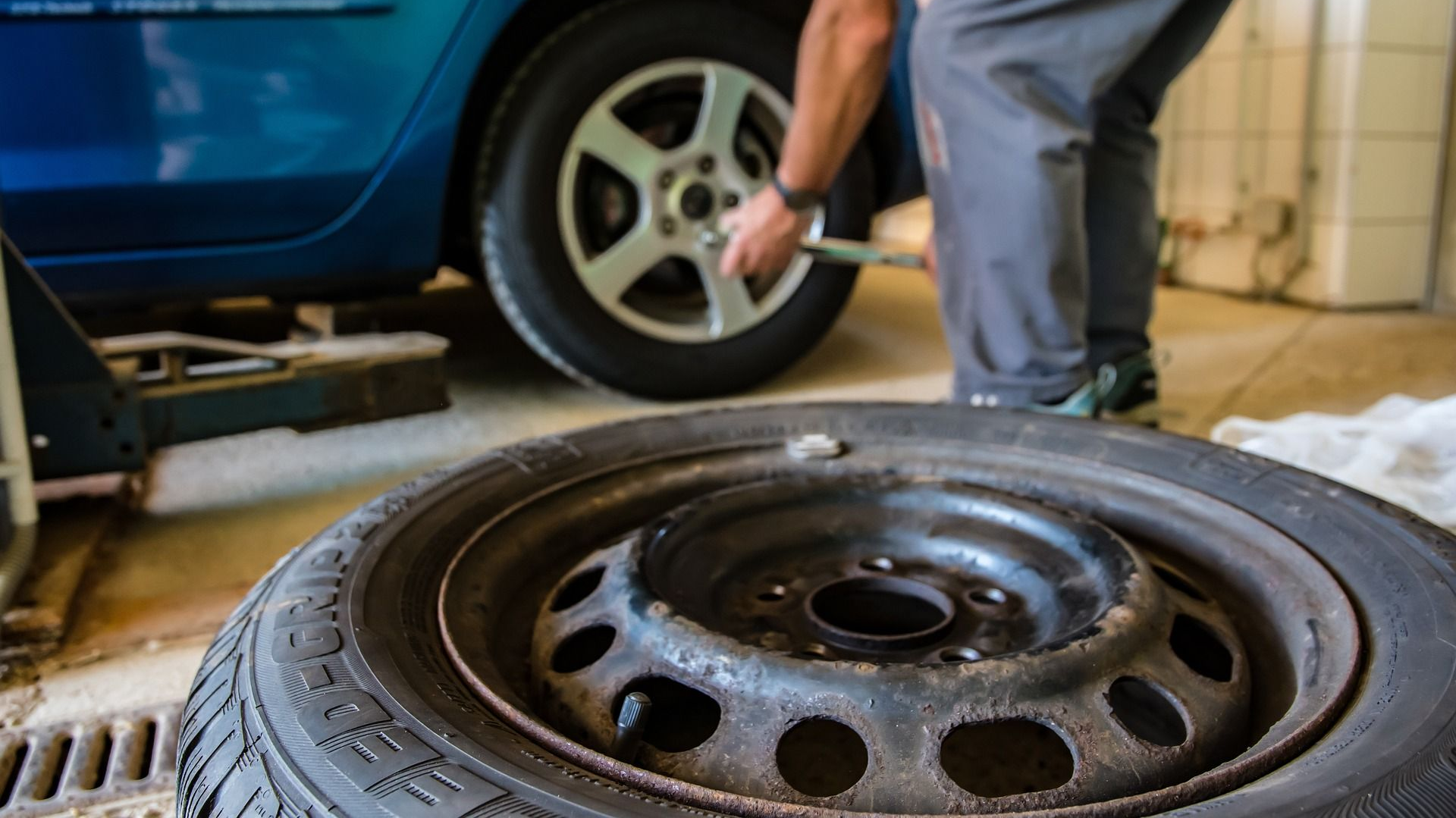
Fuel Efficiency and Alignment
Poor alignment forces tires to drag or roll unevenly, increasing resistance and requiring the engine to work harder. This reduces fuel efficiency, meaning drivers pay more at the pump. According to the U.S. Department of Energy, proper tire alignment can improve gas mileage by up to 10 percent. Over time, this adds up to significant savings, especially for those who commute long distances or drive frequently.
Safety Implications of Misalignment
While fuel costs are an important consideration,
safety is an even greater concern. Misaligned tires reduce traction and handling, particularly in adverse weather conditions such as rain or snow. Vehicles may pull to one side, increasing the risk of drifting into another lane or off the road. Stopping distances can also increase, as uneven tire contact reduces braking effectiveness. In severe cases, misalignment can contribute to blowouts when tires wear down too quickly on one side.
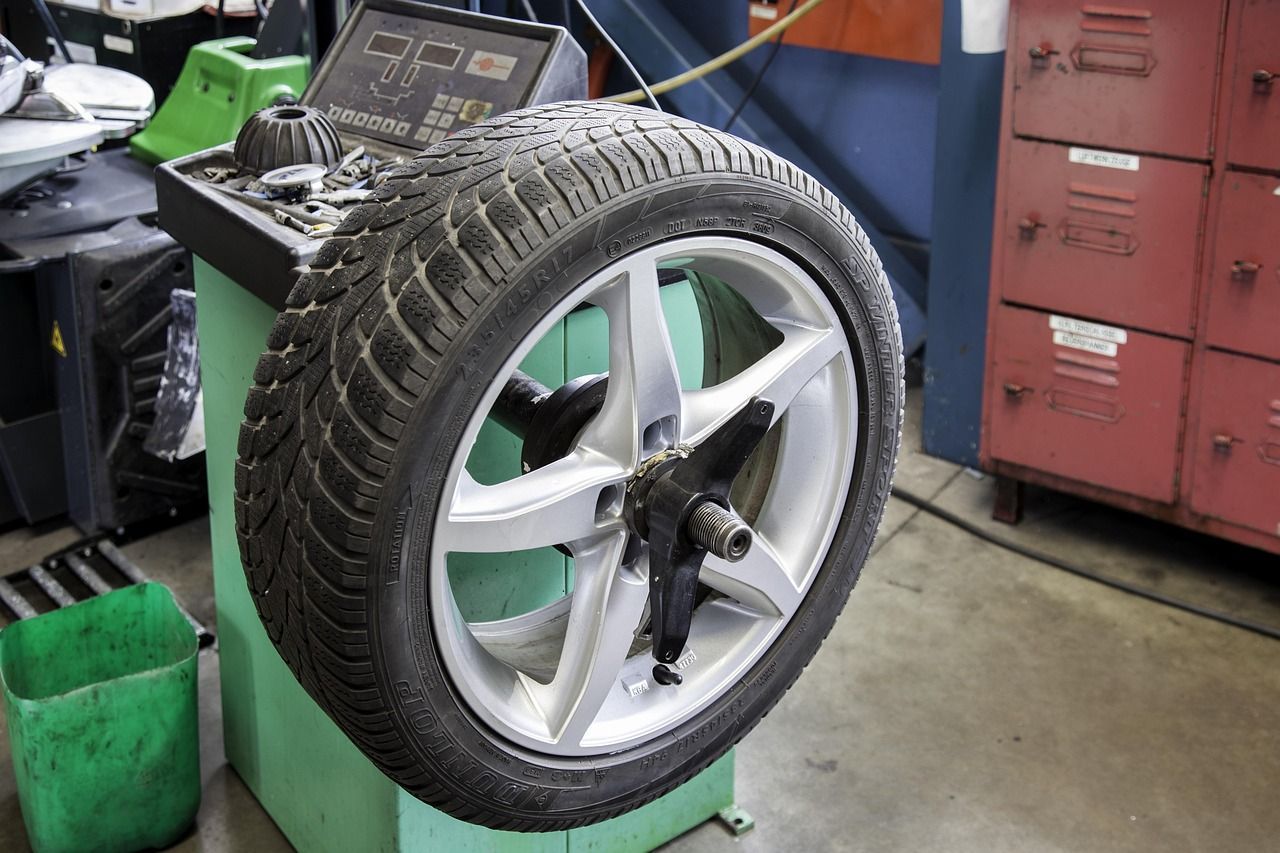
Signs of Poor Alignment
Drivers should watch for warning signs that indicate alignment problems. Common symptoms include:
- Uneven or rapid tire wear
- Steering wheel pulling to one side
- Vibration in the steering wheel
- Crooked steering wheel when driving straight
These issues are more than inconveniences. They signal that a vehicle is not performing optimally and may pose risks to both safety and efficiency.
Extending Tire Life
Proper alignment does more than protect fuel economy and safety. It also extends the lifespan of the tires themselves. Misaligned wheels wear unevenly, meaning drivers often have to replace tires sooner than expected. For example, a tire that should last 50,000 miles may need to be replaced at 30,000 miles if alignment is ignored. By keeping tires aligned, owners protect their investment and avoid unnecessary expenses.
Professional Alignment Services
While some drivers attempt do-it-yourself adjustments, professional alignment services provide precise results. At Raymond’s Tire Shop, we use advanced alignment equipment to measure suspension angles and make corrections to manufacturer specifications. Regular alignment checks, particularly after hitting potholes or curbs, ensure that vehicles remain safe and efficient. For most drivers, we recommend alignment inspections at least once a year or whenever new tires are installed.

Final Thoughts
Tire alignment is a vital part of vehicle maintenance that directly affects fuel efficiency, safety, and tire longevity. Neglecting alignment not only increases costs but also compromises driver and passenger safety. By keeping wheels aligned, drivers enjoy smoother rides, better mileage, and greater confidence on the road.
At Raymond’s Tire Shop, we are committed to helping our customers stay safe while saving money. Our alignment services ensure that vehicles perform at their best, keeping tires in top condition and protecting against unnecessary risks.





